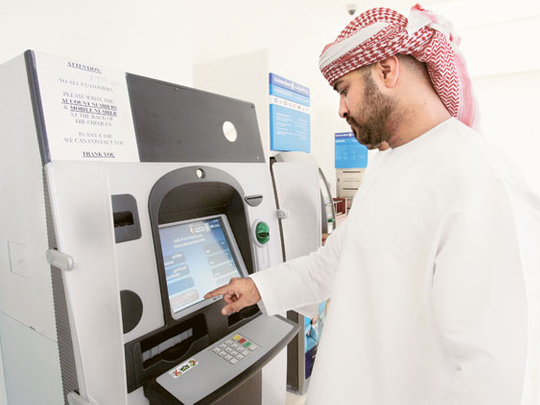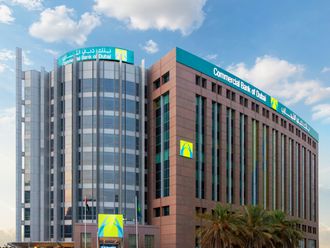
Dubai: Retail banking is expected to lead the industry's growth by 10 per cent over the next five years but poor customer service, lack of talent and political risk are immediate challenges, according to industry insiders.
"The crisis has permanently changed the dynamics of the banking industry. Retail is the new boom, if you like. It is more sustainable, it's got less volatility, it's more predictable. It's almost become the backbone of banks," said Suvo Sarkar, general manager of consumer banking at the National Bank of Abu Dhabi (NBAD).
Banks in the UAE earn an estimated 30 to 40 per cent of their revenue from retail, he added.
Retail banking is looking more promising than corporate banking at the moment because it includes the quickly growing sector of small and medium enterprises, is less risky than corporate lending and the region's young population means growing demand for bank products, experts agreed.
Instability
"About 18 months ago banks took a real hard look at their business mix... Lots of banks that did not do retail have now started to do retail or are expanding retail because in a down market you don't want to be a one-horse pony. It is a regional demographic imperative. There are 400 million people in Mena, of which at least half are young, under 40 to 45, which means they'll be consuming financial service products for the next 20, 30 or 40 years. Retail banking earnings, when done right, could be more stable," said Salmaan Jaffery, the regional retail banking sector leader at Ernst and Young.
In the short term, the political unrest in the Middle East will hamper growth in the retail banking sector, bankers said.
"Political instability is not good for anybody. It will impact business volume in terms of new loans being written and marketing because people's lives are disrupted. Look at Egypt: All big banks had to scramble to protect their people. There will be an impact, but in the long term the demographic story doesn't change," Jaffery said.
In the next three to five years, retail banking will benefit from the positive effects of the revolutions in the Arab world calling for economic justice, bankers said.
"There is more opportunity than risk. Especially for retail banking you'll see a much stronger and more empowered middle class for all these countries in the region. That would have a positive effect on the standards of living and therefore bigger uptake of banking products, accounts, cards, wealth management, all these areas of retail management will benefit," Sarkar said.
Positive effect
"All these countries going through change, call it people power or whatever, will have a positive knock-on effect on retail banking. There are short-term risks, but in the medium and long term it is all positive."
Another positive effect of the political change for banks is the "flight to stability" as capital moves to safer grounds in the UAE and more expats moving their families here from the countries in turmoil, Sarkar added.
Regional turmoil has also led to increased government spending and job creation, which is an opportunity rather than a threat to retail banking, said Fahad Al Semari, general manager of retail banking at Alinma Bank in Saudi Arabia.
With the economic and political crises regulators will be putting pressure on retail banking, making the short-term picture less rosy than the long-term prospects due to increasing costs of capital and lack of liquidity, a panel of bankers agreed.
"The challenge is for the industry not to trip over itself," said Ajay Makhija, head of consumer banking at Samba Financial Group.
Savings, retirement and home ownership will continue to be profitable segments for retail banking, but driving down transaction costs remains a challenge, Jaffery added.
"We're moving to an era now where banks have to be sharper in terms of risk management, cost management and customer management to be able to make the kind of revenues we made in the past," Sarkar said.










